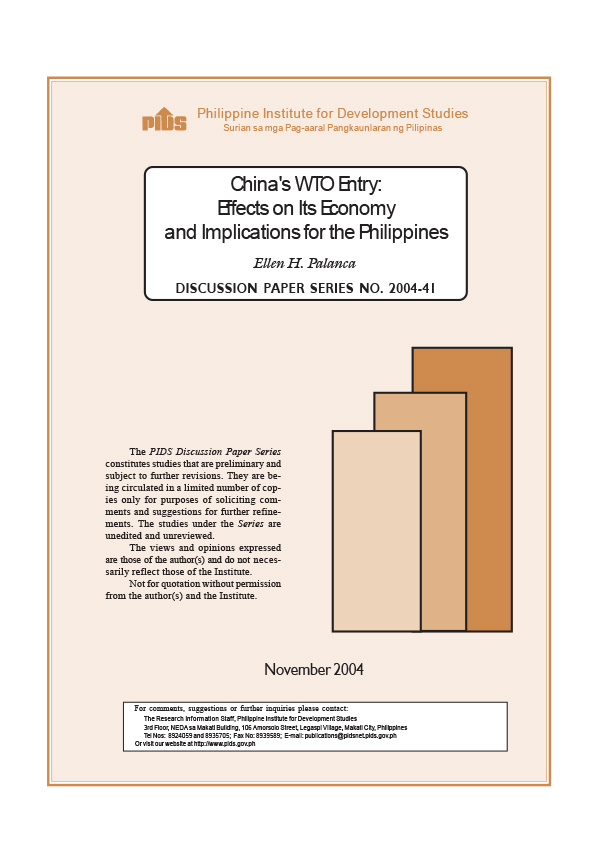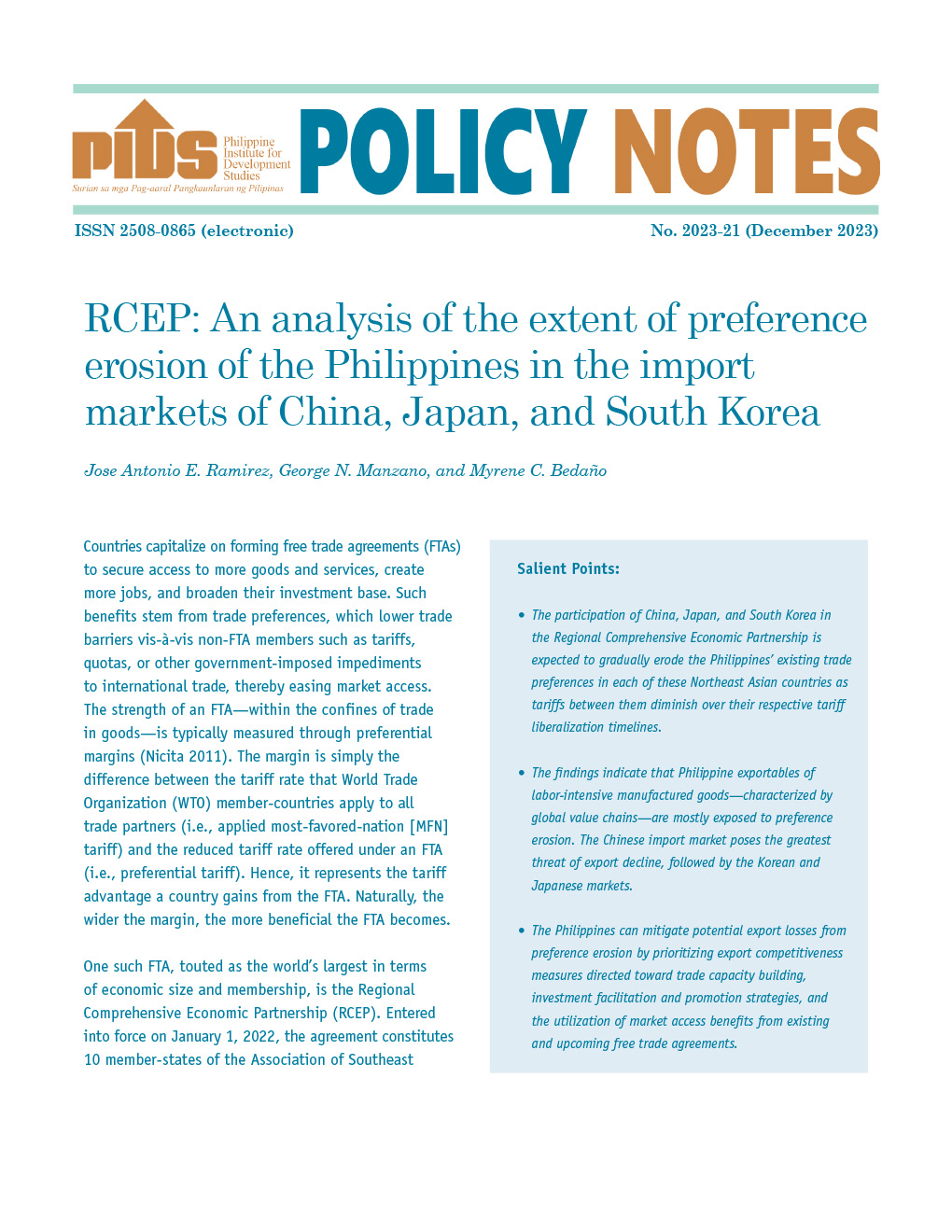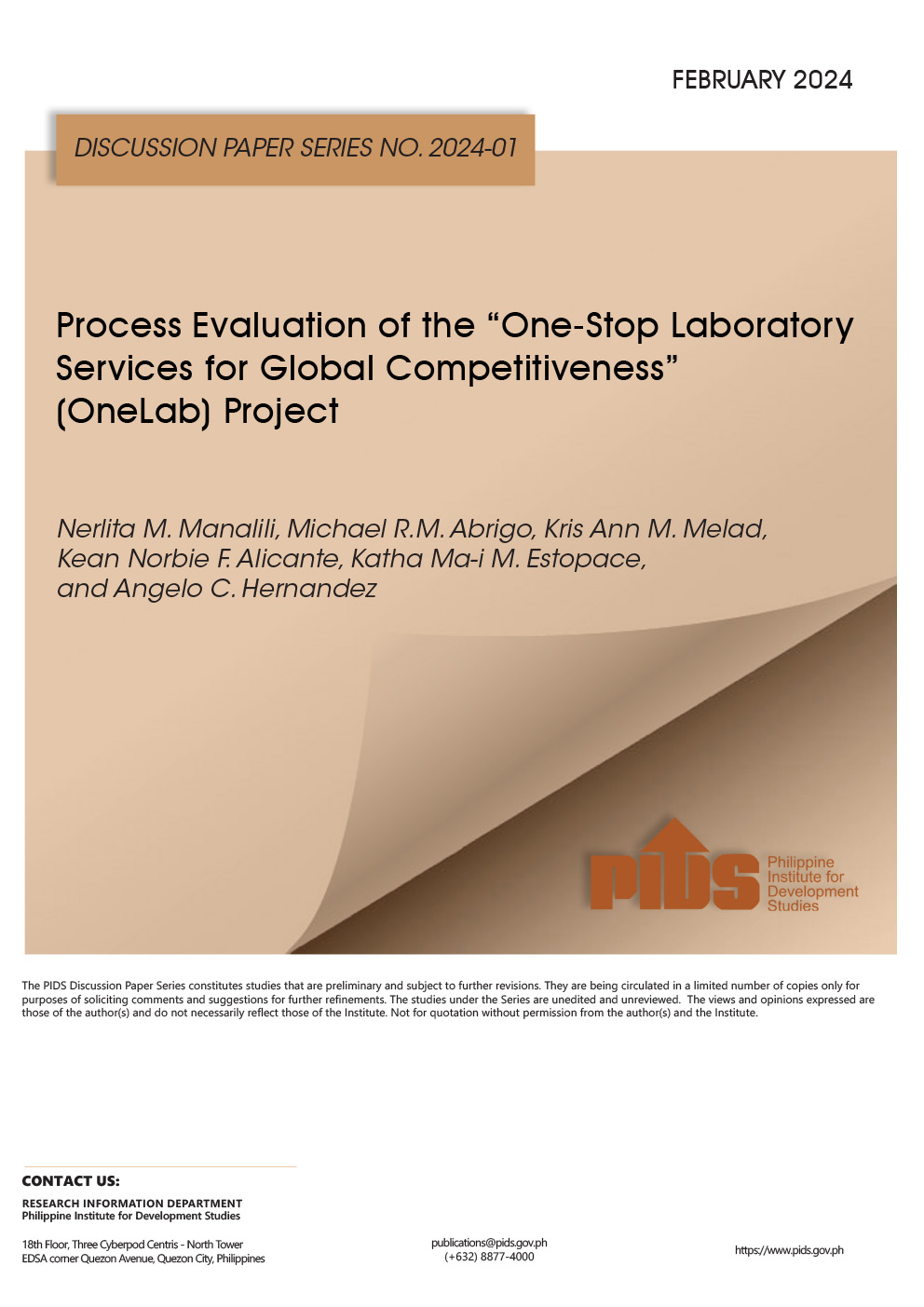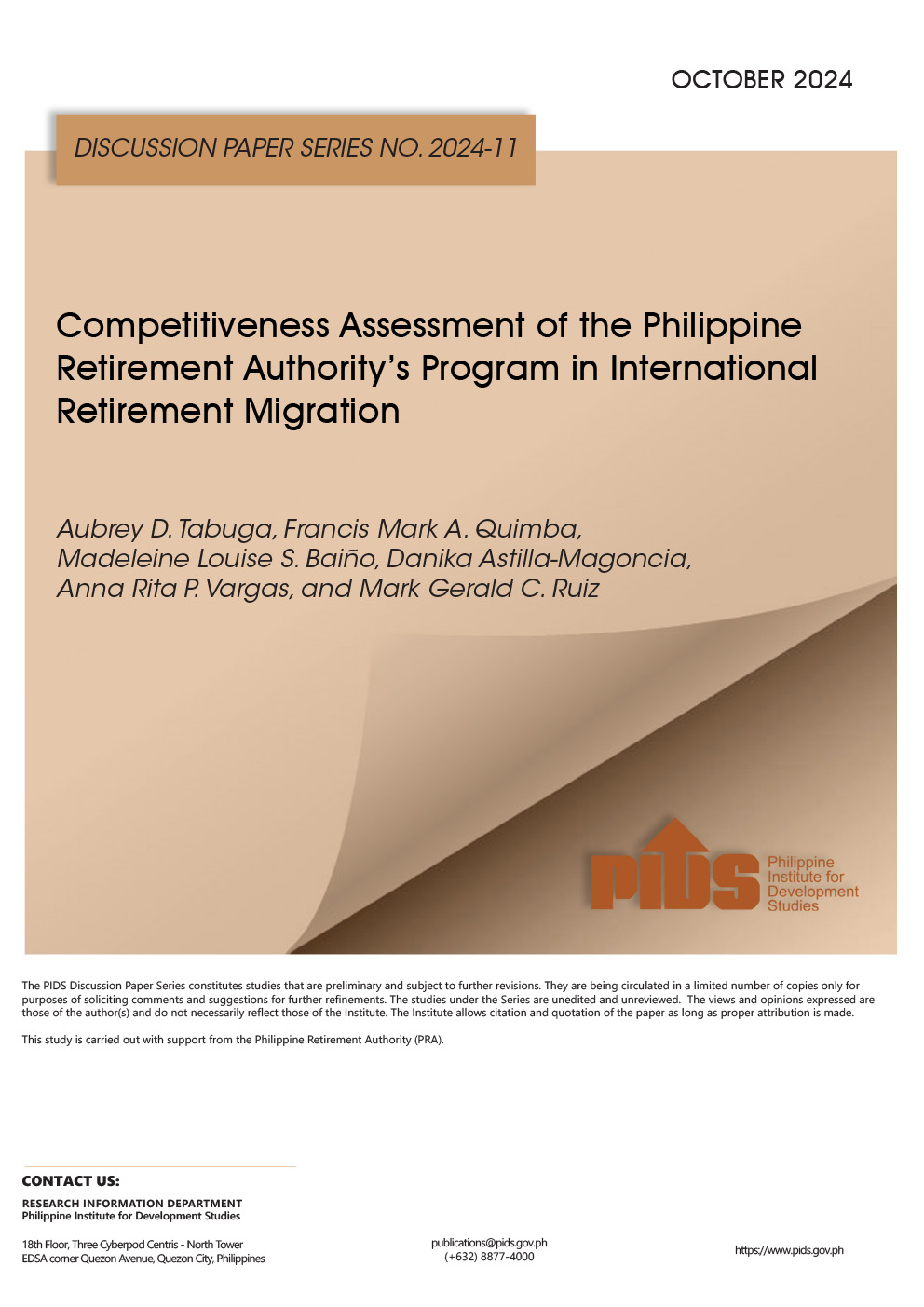This paper investigates the implications of China’s accession to the World Trade Organization in December of 2001 for the Philippines based on an analysis of Philippines-China bilateral trade structure, a presentation of the commitments made by China for its WTO accession, and a discussion of this significant event on China’s own economy. The main commitments of China to WTO are market liberalization and the rule of law consistent with the legal framework of WTO. In the long run, China’s competitiveness will increase and its economic growth will experience another surge. For the Philippines, the positive impact of such developments includes: greater market opportunities for merchandise and service trade, greater foreign direct investment flows to and from China, and better protection for Philippine business interests and professionals in China. However, reduction of trade barriers for China and the rise in its competitiveness imply that the Philippines will find it increasingly difficult to compete with China particularly in third-country markets. Moreover, China’s rosy economy also makes competition for foreign direct investments difficult for the Philippines. This study includes recommendations for the Philippines so as to maximize the benefits from the available opportunities and minimize the negative impact of the unavoidable challenges.
Citations
This publication has been cited 1 time
- Lazaro, Dorothea C., Ganeshan Wignaraja, and Genevieve De Guzman. 2011. Factors affecting use or nonuse of Free Trade Agreements in the Philippines. Philippine Journal of Development PJD 2009, 36, no. 2. Philippine Institute for Development Studies.













